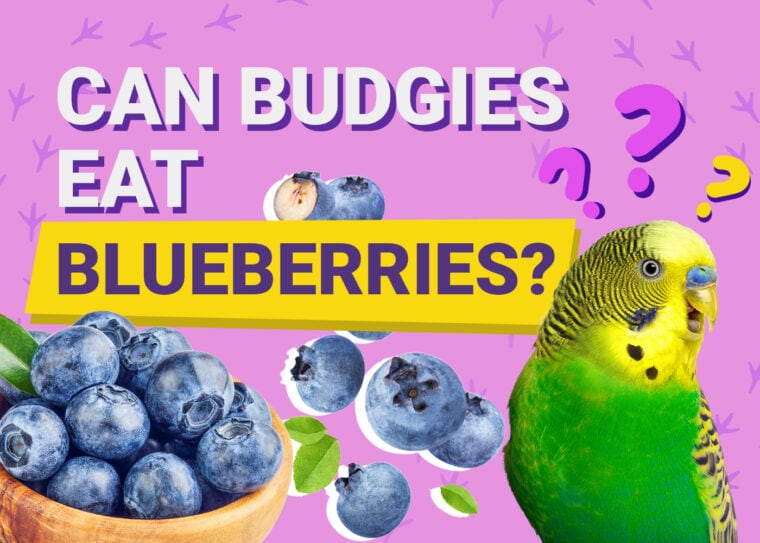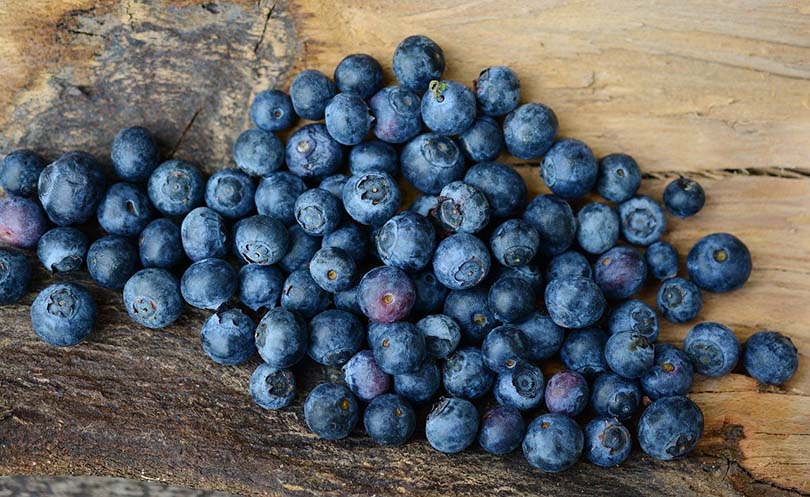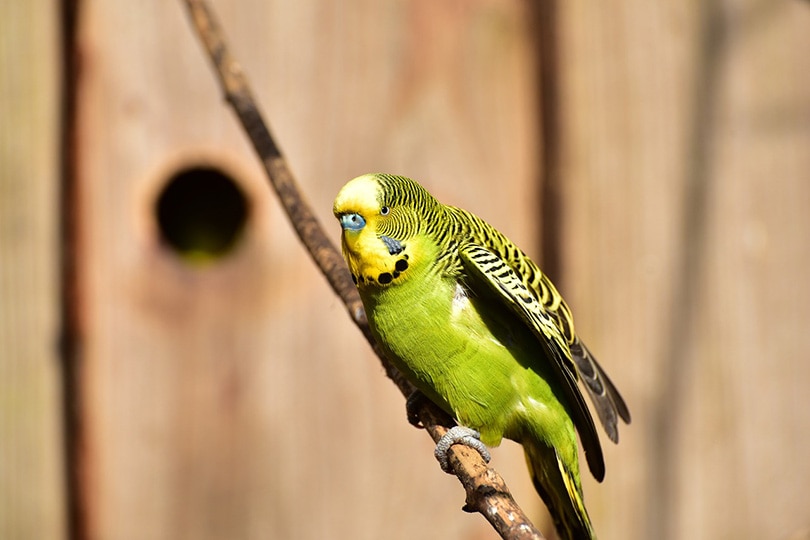
Budgies love to snack on lots of fresh fruits and veggies in addition to their commercial bird feed diets. But when you’re rounding up a list of budgie-safe foods, you want to make sure everything you serve is healthy and non-toxic for your bird.
If you’re wondering if you can add blueberries to their diet—you’ll be happy to know it’s a perfect snack. Not only is it full of valuable nutrients—it’s perfect for their little claws to grab. Let’s look at the benefits and learn how much to serve your birdies.
What Are Blueberries?
Blueberries are semi-sweet fruits found in supermarkets almost everywhere. You can use blueberries in all kinds of goodies like pies, desserts, and fruit medleys. Human beings are not the only ones who can enjoy this delicious superfruit. Blueberries are good for all parrots, including your budgies. They are super healthy, too.

Blueberry Nutrition Facts
If you hand your budgie a blueberry, this is the breakdown of the nutrition in the berry
Source: https://fdc.nal.usda.gov/fdc-app.html#/food-details/1102702/nutrients
The fat and protein content in a single blueberry are more or less negligible. Most of a blueberry is water, followed by carbohydrates (which also contribute to its caloric yield). Many of these carbohydrates are natural sugars. Blueberries are also rich in other micronutrients (minerals and vitamins) which contribute to your budgie’s overall health and well-being.
Benefits and Concerns of Budgies Eating Blueberries
Blueberries are packed with potassium, vitamins, and minerals that provide great health benefits for your budgie. These little berries have a great flavor and are soft and easy to eat. Blueberries make the perfect snack for your budgies because they are the ideal size to fit in their tiny little claws.
Fruits are necessary for your budgie’s health and should be incorporated into their diet. However, fruits should only comprise a small portion of their daily foods (around 5%–10% at most). The rest of your budgie’s nutritional needs can be be summed up as:

Blueberries and other berries are among the best fruit options for your budgie, because they are rich in many vitamins and minerals, and while they do contain natural occurring sugars, these sugars are usually in the least amounts in berries. This makes blueberries an overall excellent choice for your budgie!
How to Feed Your Budgie Blueberries
Any time you feed your budgie blueberries, you need to make sure that you wash the berries thoroughly to remove any chemical residue or pesticides on the fruit.
You won’t need to cut up the blueberries, as they are the perfect size for your budgie to tear into without help. You can offer it up and watch them enjoy it. As mentioned previously, the skin of the blueberry is safe for your bird. The seeds are safe, too.

What Is a Budgie’s Natural Diet?
Wild budgies are granivores; they are primarily grain feeders. In their native Australia, they are nomadic foragers who travel in large flocks and consume a wide variety of seeds and grains. They are opportunistic, and will also eat fruit and vegetables whenever the opportunity arises. Though mostly vegetarian, they aren’t considered true herbivores and may occasionally snack on a grub or other insects.
Replicating this diet in captivity isn’t possible. This, coupled with the relative inactivity of budgies kept in captivity mandates the inclusion of a good-quality pellet in their diet. However, no pellet food is considered nutritionally complete and adequate for them – therefore, their diet must be supplemented with vegetables, fruits, nuts, seeds, grains, pulses, and legumes on a daily basis.
Other Snacks for Budgies
Other snacks your budgies can safely enjoy include:
Don’t be afraid to try homemade DIY snacks, either.

Final Thoughts
Blueberries are an excellent source of nutrition for your birds, so you can freely integrate some of these into your budgie’s diet. Just be careful about portions to make sure they aren’t only filling up on sweet snacks, no matter how healthy they might be in moderation.
Whenever in doubt about your budgie’s diet, it’s best to consult with your veterinarian for advice.
Related reads:
- Can Budgies Eat Peanut Butter? Vet-Approved Nutritional Info You Need to Know!
- How Long Do Budgies Live? Average Lifespan, Data & Care
Featured Image Credit: jLasWilson, Pixabay









